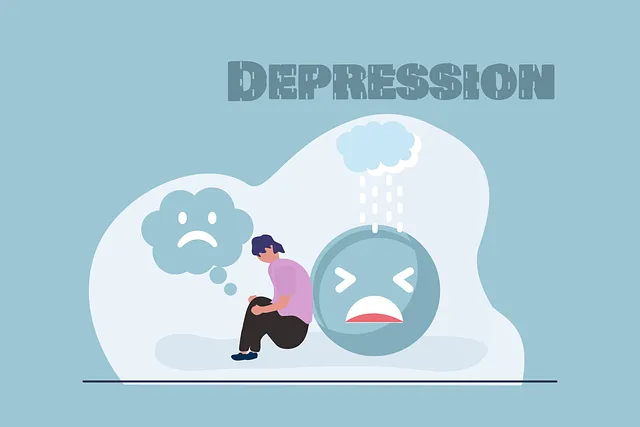Denver Kaiser Permanente (DKP) leads in culturally sensitive mental healthcare, integrating competence into every service delivery. They train professionals to understand and respect diverse backgrounds, customizing treatments accordingly. DKP's initiatives include public awareness campaigns and inclusive practices like tailored crisis interventions and culturally relevant wellness journaling materials. Their commitment to these principles enhances therapeutic outcomes, expands access to mental health services, and underscores their innovative Denver Kaiser Permanente mental health coverage approach.
Cultural sensitivity is a cornerstone of quality mental healthcare, ensuring inclusive and effective treatment across diverse communities. This article explores the vital role cultural competence plays in addressing mental health disparities, drawing insights from Denver Kaiser Permanente’s innovative approach to mental health coverage. We delve into best practices for providers, offering strategies to navigate cultural nuances and deliver tailored care. By understanding and respecting different cultural contexts, healthcare providers can significantly impact the accessibility and outcomes of mental health services.
- Understanding Cultural Sensitivity: Why It Matters in Mental Healthcare
- Denver Kaiser Permanente's Approach to Cultural Competence in Mental Health Coverage
- Best Practices for Providers: Ensuring Inclusive Care Across Cultures
Understanding Cultural Sensitivity: Why It Matters in Mental Healthcare

In the realm of mental healthcare, cultural sensitivity is not just a desirable trait but an indispensable necessity. It involves recognizing and respecting the diverse cultural backgrounds, beliefs, and values that shape individuals’ experiences and interactions with mental health services. Given the personal nature of mental wellness journaling exercise guidance, emotional intelligence plays a pivotal role in fostering effective therapy sessions. Denver Kaiser Permanente’s mental health coverage underscores the importance of addressing these cultural nuances to ensure equitable access to quality care.
Understanding cultural sensitivity is crucial for practitioners as it enables them to offer tailored emotional regulation support, enhancing the overall therapeutic process. By embracing diverse perspectives, healthcare providers can create a safe and inclusive environment that encourages open communication. This, in turn, facilitates deeper exploration of mental health issues, making emotional intelligence an essential tool for navigating complex interpersonal dynamics. It allows professionals to provide guidance that resonates with clients from various cultural walks of life.
Denver Kaiser Permanente's Approach to Cultural Competence in Mental Health Coverage

Denver Kaiser Permanente (DKP) recognizes the critical importance of cultural sensitivity in mental healthcare. They have pioneered an approach to mental health coverage that integrates cultural competence at every level of care delivery. This commitment is reflected in their comprehensive training programs for mental health professionals, which equip them with the skills to understand and address the unique needs of diverse patient populations.
DKP’s strategy involves proactive initiatives like public awareness campaigns development focused on depression prevention and stress reduction methods tailored to various cultural contexts. By fostering an inclusive environment, they ensure that all patients receive care that respects their backgrounds, traditions, and beliefs. This approach not only enhances treatment outcomes but also promotes equitable access to mental healthcare services for every individual within their community.
Best Practices for Providers: Ensuring Inclusive Care Across Cultures

In providing inclusive care for a diverse range of patients, mental health professionals must embrace cultural sensitivity as a best practice. This involves recognizing and respecting individual cultural backgrounds, beliefs, and values while tailoring treatment approaches to meet their unique needs. At Denver Kaiser Permanente, mental health coverage is designed to support this principle by offering services that are sensitive to cultural contexts. Providers should actively engage in cross-cultural education and training to enhance their understanding of different cultural norms and practices related to mental wellness. This includes learning about common expressions of distress across cultures and developing effective communication strategies.
Effective communication plays a pivotal role in building trust and fostering meaningful therapeutic relationships. Mental health professionals should adapt their communication styles to be more inclusive, ensuring that all patients feel heard and understood. Crisis intervention guidance tailored for diverse cultural groups can also help professionals de-escalate situations sensitively and effectively. Additionally, encouraging patients to engage in mental wellness journaling exercises guided by culturally sensitive materials can promote self-reflection and coping strategies aligned with their cultural identities.
Cultural sensitivity is an indispensable aspect of mental healthcare, as evidenced by Denver Kaiser Permanente’s innovative approach to cultural competence in their mental health coverage. By adopting best practices that prioritize inclusive care across diverse cultures, providers can create safer and more effective treatment environments. Integrating cultural sensitivity into mental healthcare not only enhances patient outcomes but also fosters a more equitable and accessible system for all. This holistic approach ensures that every individual receives the compassionate, tailored care they deserve, regardless of their cultural background.


